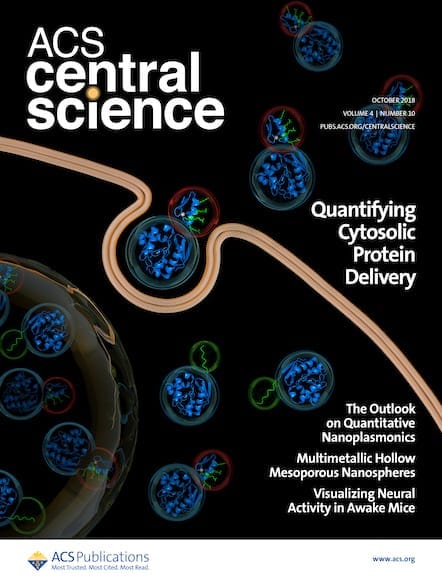ACS Central Science Senior Editor Monica Olvera de la Cruz is the recipient of the 2017 Polymer Physics Prize from the American Physical Society. The award recognizes Olvera de la Cruz’s “outstanding contributions to the theoretical understanding of polymers and the effects of electrostatic interactions on their structure and properties.” She is the Lawyer Taylor […]

ACS Central Science Senior Editor Monica Olvera de la Cruz is the recipient of the 2017 Polymer Physics Prize from the American Physical Society. The award recognizes Olvera de la Cruz’s “outstanding contributions to the theoretical understanding of polymers and the effects of electrostatic interactions on their structure and properties.” She is the Lawyer Taylor Professor of Materials Science and Engineering in Northwestern’s McCormick School of Engineering.
ACS Axial reached out to Olvera de la Cruz to learn more about her research, her involvement with ACS Central Science, and her advice to the next generation of scientists.
How would you describe your work?
I am a physical chemist working in soft materials using statistical mechanics, electrostatics, elasticity, thermodynamics and kinetic theory.
What are some potential practical applications of your research?
Our studies aim to design materials that respond to external stimuli including responsive gels and polymer membranes for water filtration and energy storage and conversion devices.
What sparked your initial interest in polymers?
The multiple conformations they take, which are accessed by changing external parameters, and their relevance to biology and biotechnology.
How do you see your work influencing other areas of chemistry?
My work can help the design of polymers to act as sensors, filtration devices, or delivery of therapeutic materials by specifying backbone configurations and molecular weights for the desired application.
Prior to 2015, the APS Polymer Physics Prize prize had never been awarded to a woman. Now it’s gone to two in a row. Do you feel like the work of women is being taken more seriously than it was when you started out?
I think the work of women in polymer physics has been so significant that it cannot be ignored
Can you talk about the role of reviewers in a journal like ACS Central Science? What are the ideal skills of a reviewer?
The reviewers should evaluate the quality of the work, its significance, and its accessibility to the broad background of the ACS Central Science readers. A skillful reviewer can evaluate and express the value of the work reviewed.
What’s the most common piece of advice you give to younger scientists working in your group?
Find problems that are puzzling and that others have not formulated.
What are some of your hopes for ACS Central Science in 2017?
To publish solid work in exciting research areas that guide many more studies by the community.
